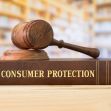On Wednesday, the U.S. Consumer Financial Protection Bureau (CFPB) announced that it will extend some credit card consumer protection rules to Buy Now, Pay Later (BNPL) lenders, aiming to enhance oversight of the rapidly expanding sector.
BNPL providers such as Affirm, Klarna, and Afterpay, which partner with retailers to offer financing for customer purchases paid in installments, have become a significant source of credit. However, until now, they have operated without a comprehensive federal oversight framework.
Under the CFPB's new interpretive rule, BNPL lenders must adhere to several consumer protection measures already required of credit card companies under the Truth in Lending Act. These include:
- Investigating customer disputes
- Refunding products that have been returned
- Providing periodic billing statements
"Regardless of whether a shopper swipes a credit card or uses Buy Now, Pay Later, they are entitled to important consumer protections under longstanding laws and regulations already on the books," stated CFPB Director Rohit Chopra.
While many major BNPL providers voluntarily comply with similar protections, the new rule seeks to ensure consistency across the industry. The rule will apply specifically to the popular "pay in four" installment product. However, BNPL providers will not be required to comply with all credit card rules, such as assessing a consumer's ability to repay.
According to Adobe Analytics, in 2023, BNPL loans facilitated $75 billion in online spending, a 14.3% increase from the previous year. The CFPB's 2022 report indicated that consumers often use BNPL as a substitute for conventional credit cards but noted variability in consumer protection disclosures across providers and potential risks of over-indebtedness.
Klarna, in a statement, described the CFPB's move as "a significant step forward in regulating BNPL," emphasizing that it already operates at the standards required by the new rule. Affirm expressed support for the CFPB's efforts to promote consistent industry standards, noting that its current practices align with many of the rule's requirements.
Under Director Chopra, the CFPB has increased scrutiny of tech companies encroaching on the financial sector. The agency has proposed supervision of payment services from tech giants like Google and Apple and has examined how these companies use consumer payment data.
The Financial Technology Association, representing some BNPL firms, highlighted that while its members are dedicated to strong consumer protections, BNPL products differ from credit cards. "We look forward to providing additional comments to the CFPB and distinguishing BNPL from products whose business models rely on revolving debt and high consumer fees," stated CEO Penny Lee.
According to a CFPB official, the interpretive rule is open for public comments until August 1 and will become effective in 60 days.






